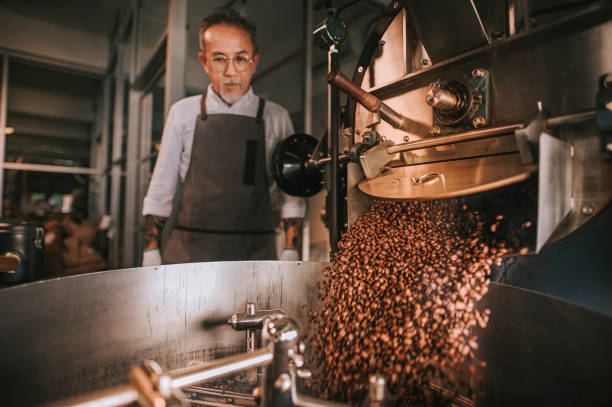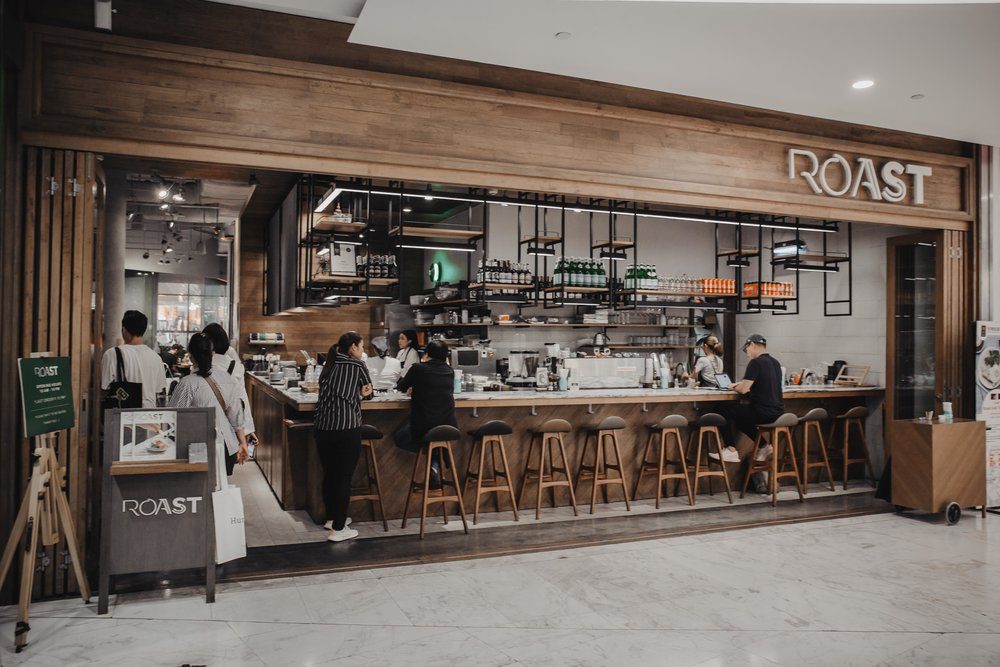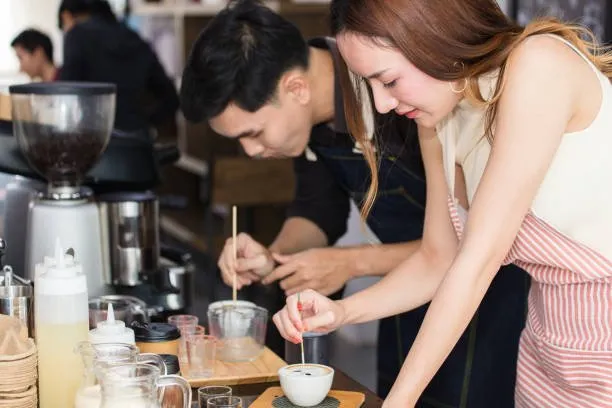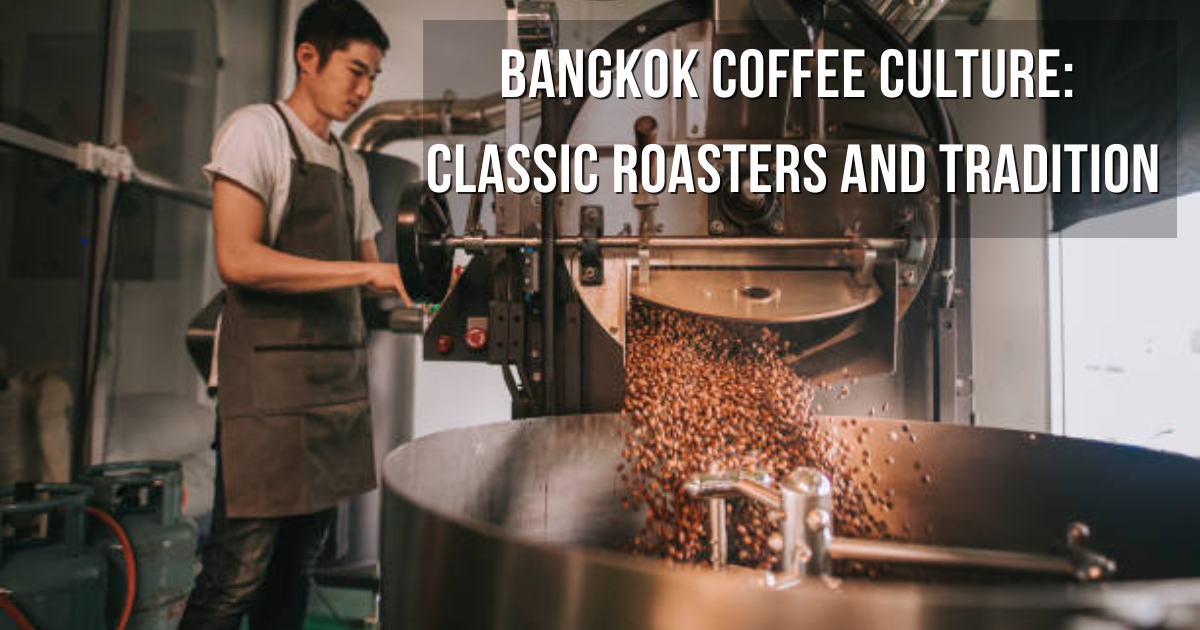Written by Lawrence Davis
Bangkok coffee culture represents a sophisticated fusion of heritage and innovation that defines the city’s evolving coffee scene. These legacy brands uphold rigorous quality standards and time-honored roasting methods, resonating strongly with Bangkok’s discerning professionals who value reliability and refined taste in their daily coffee rituals.
Quick Overview: Bangkok Coffee Culture and Classic Roasters
- Classic roasters in Bangkok employ precise, decades-old techniques for consistent, balanced coffee flavor.
- Beans are sourced from Thailand’s northern highlands and internationally, emphasizing quality and ethics.
- Legacy brands provide quiet, elegant café venues favored by business professionals.
- These roasters integrate innovation carefully, preserving their traditional identity.
- Bangkok’s coffee scene exemplifies the city’s dual commitment to heritage and progress.
This thoughtful balance secures their pivotal role in Bangkok’s dynamic coffee ecosystem.
Bangkok Coffee Culture: A Legacy of Craftsmanship
Bangkok’s classic coffee roasters trace their roots back over fifty years. Unlike trend-driven cafés, these brands focus on mastering core roasting principles: expert bean selection, controlled roasting, and custom blending.
“Consistency is key,” says Mr. Somchai Prasert, Master Roaster at Bangkok’s Roast & Brew Co., founded in 1972. “We maintain roasting profiles perfected over decades to ensure every cup delivers the rich flavor our customers expect.”

They source beans from Thailand’s highlands—Chiang Mai and Chiang Rai—for premium Arabica, and import trusted beans from Brazil, Ethiopia, and Colombia. Reports from Euromonitor International confirm that Thailand’s coffee market is expanding steadily, driven by rising consumer demand for premium quality and local sourcing.
Classic roasters also maintain alignment with global coffee standards as outlined by the Specialty Coffee Association (SCA), which define quality thresholds for specialty beans and roast grading—key benchmarks for Bangkok’s heritage brands.
Classic Cafés as Professional Sanctuaries
In business districts like Silom, Sathorn, and Sukhumvit, classic cafés serve as more than coffee stops; they are curated environments for focused discussion. With refined interiors, subdued lighting, and a calm atmosphere, these venues attract executives seeking spaces aligned with corporate decorum.

“Many clients come here for meetings and work sessions,” says Ms. Naree Wong, manager at The Heritage Café, a respected name in the business community. “They come for the coffee but stay for the environment that fosters thoughtful dialogue.”
Market data from MarketResearch.com supports this trend, showing continued growth in Thailand’s café and bar segment—particularly among professionals who value both coffee quality and space functionality.
Innovation Within Tradition
Classic roasters are not static. They now offer specialty single-origin beans, advanced brewing methods, and cold brews to appeal to evolving tastes while preserving tradition.
“Adapting without losing our identity is critical,” explains Mr. Prasert. “We introduce new offerings carefully to complement our heritage.”
Roasters are also investing in barista training and community outreach to ensure future continuity. Many have begun participating in sustainability programs and certification initiatives that align with ethical sourcing standards promoted by the SCA—further reinforcing their leadership status.

Efforts like the regional ASEAN AgriFood Coffee Project are helping coffee growers in northern Thailand adapt to climate change, improve yields, and secure long-term contracts with Bangkok roasters.
Market Dynamics and Government Support
Bangkok’s coffee market is growing due to urbanization, rising incomes, and shifts toward café-based lifestyles. Still, legacy roasters face challenges like rising raw bean costs, global shipping volatility, and boutique competition.
“Ensuring supply consistency is a key challenge,” says Ms. Wong. “We coordinate closely with farmers and cooperatives to maintain quality.”
In 2023, Thailand’s Ministry of Agriculture and Cooperatives (MOAC) reaffirmed its commitment to expanding domestic coffee production, launching projects to reduce import dependency and mitigate haze from traditional crop burning in the North. This aligns with Bangkok roasters’ efforts to work directly with certified sustainable Thai farms.
Tradition as a Strategic Advantage
Classic coffee roasters in Bangkok reflect a broader business principle: grounding success in heritage while embracing strategic innovation. For professionals, selecting legacy roasters means aligning with values of consistency, excellence, and integrity—qualities essential in both coffee and commerce.
As Bangkok cements its status as an economic hub, these brands offer both quality and stability that professionals rely on amid rapid change.
Conclusion: Tradition and Quality Brew Bangkok’s Coffee Culture
Bangkok’s classic coffee roasters exemplify how tradition can flourish alongside innovation. More than just a daily ritual, they offer a dependable experience grounded in craftsmanship and professionalism.
In a dynamic market swamped with transient trends, these roasters remain devoted to quality, community, and thoughtful evolution—continuing to serve Bangkok’s discerning professionals well into the future.
Written by Lawrence Davis.
For ongoing coverage of lifestyle, entertainment, and major events in Bangkok and beyond, visit Bangkok One News and follow us on Facebook.

